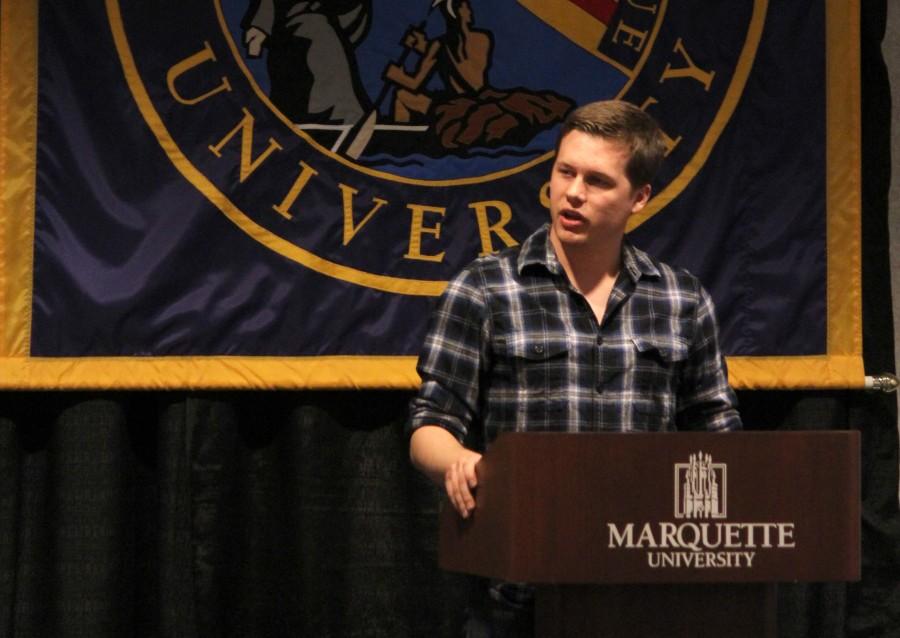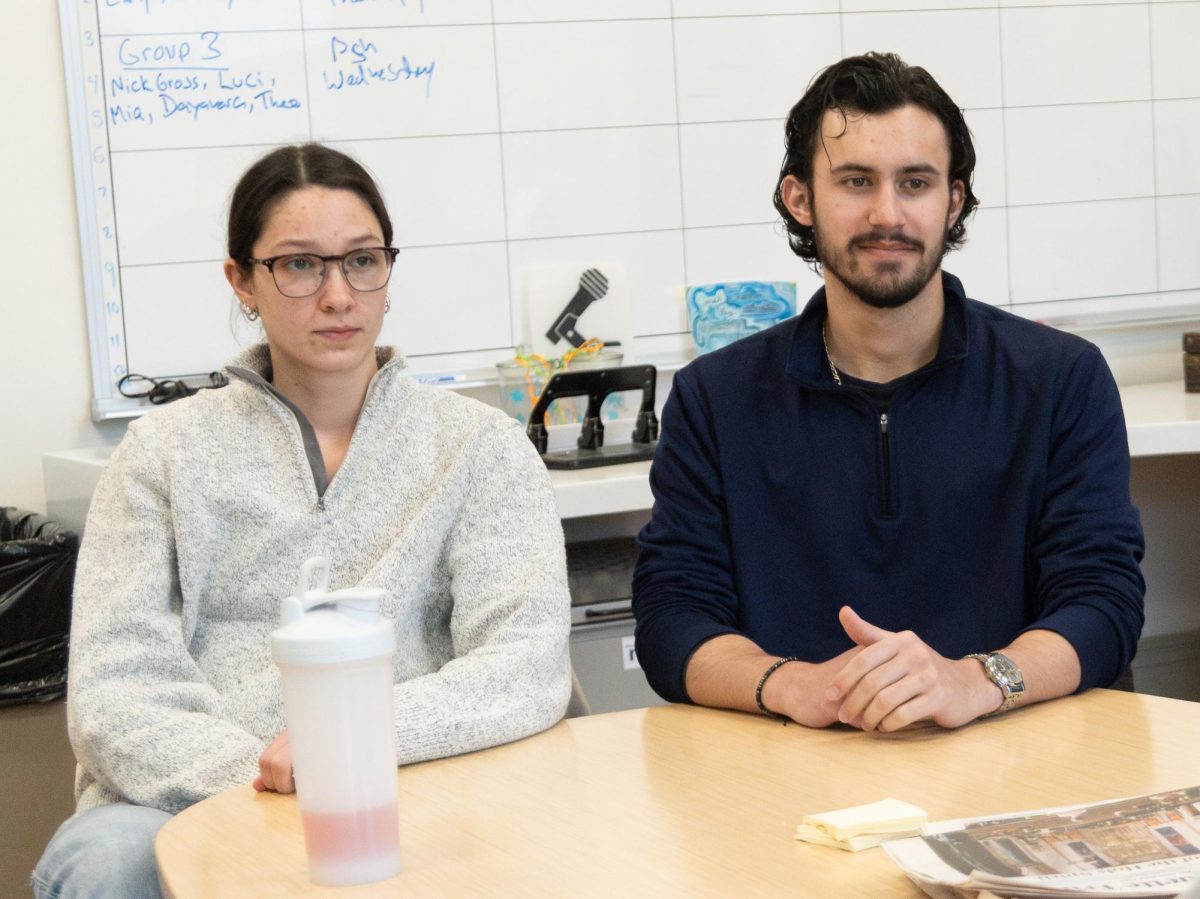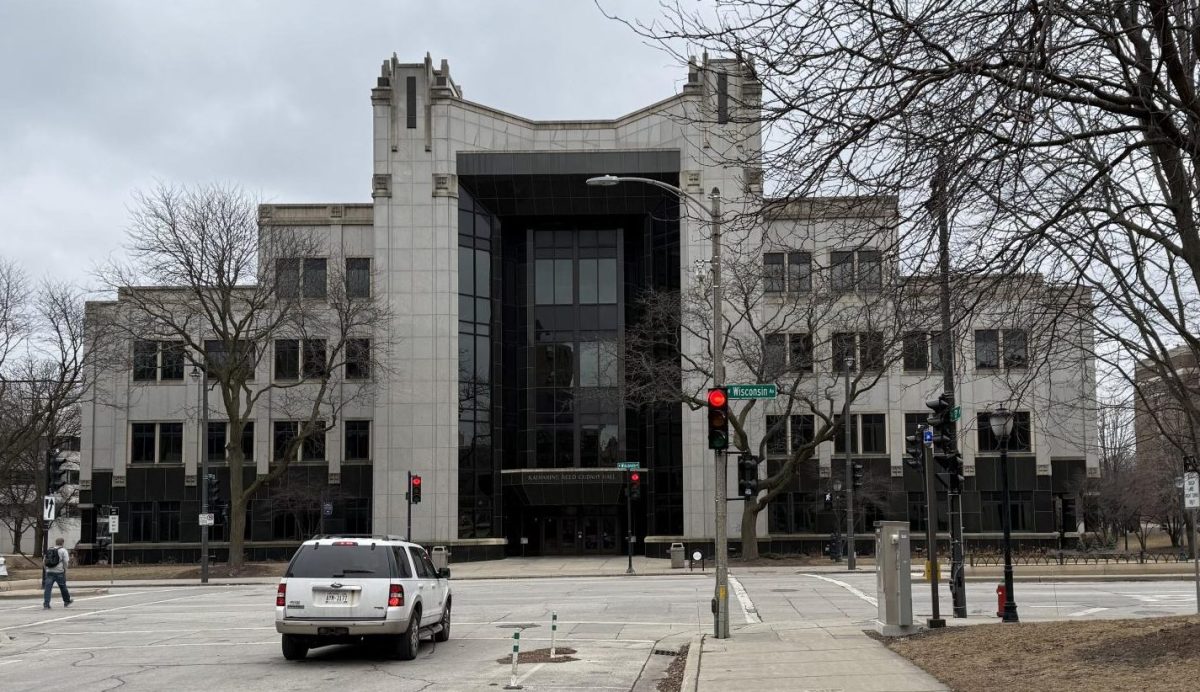At the last meeting under its current administration last night, Marquette Student Government twice attempted and failed to pass an amendment to its constitution that would have eliminated the required minimum amount of Student Organization Funding spending.
The amendment was authored by President Arica Van Boxtel, a senior in the College of Communication, Schroeder Hall Senator Thomas Schick, a sophomore in the College of Arts & Sciences, and Arts & Sciences Senator Zach Bowman, a sophomore. Schick and Bowman are both running for MUSG executive vice president.
The legislation proposed to remove a clause, Section V, Part B, that set a floor for the amount of the student activity fee that can be used for Student Organization Funding allocations in the budget. Section V, Part B, subsection 4 of MUSG’s Annual MUSG Budget Process states, “The amount of funds available for the allocation to recognized student organizations…shall be a figure that is not less than 30 percent of the SOF.”
Student Organization Funding, perhaps the most visible impact MUSG has on the student body, allows student groups to cover their operating expenses, including travel for club sports and speaker fees for groups that bring guest speakers to campus. Last year, a similarly controversial amendment decreased the floor from 33 percent to 30 percent.
The amendment would have allowed the budget committee more flexibility to build the annual budget at its discretion before presenting it to the senate for approval. Several senators did not support this measure and fought to keep the 30 percent minimum on SOF in place.
“Getting rid of the 30 percent minimum would create a slippery slope for the student government as a whole, and it would (inhibit) the increase of money allocations to student organizations,” said College of Business Administration Senator Tommy Hayes, a junior and chairman of the Student Organizations committee.
The amendment needed 20 votes to pass. On the first ballot, the Senate voted 15 in favor, nine against. Immediately following the vote, Bowman made a motion for committee of the whole, which took the meeting out of normal senate procedures and allowed the entirety of the senate and executive board to operate as a singular committee and discuss the amendment.
“It was our intention, obviously, after the first amendment didn’t pass to hopefully get an amendment that passed,” Schick said. “We did feel very strongly about it, but (the) senate spoke, and we will roll with the punches.”
After a lengthy discussion on the issue, the senate once again voted on the amendment, and once again it failed to pass. Fifteen voted in favor of it the second time, with eight against and one abstention.
The meeting was the last opportunity for the current administration and sitting senate to pass the amendment. There is no MUSG senate meeting next week, and a new administration is sworn in April 2. If neither Bowman nor Schick wins the executive vice president position, there may be no carryover on the budget committee from the current senate.
Thursday’s meeting was bittersweet for Van Boxtel, whose term as president will end on April 2.
“Whether I agree or disagree with the verdict of Senate tonight, watching our Senate ask a lot of questions and work through the challenges to understand and represent their constituents in the best ways they can gives me great confidence,” Van Boxtel said.
Von Boxtel’s replacement will be chosen Tuesday in the MUSG general election for president and executive vice president.









yadasazawude • Mar 25, 2013 at 8:40 am
do you thingthat all element of planing are standards?